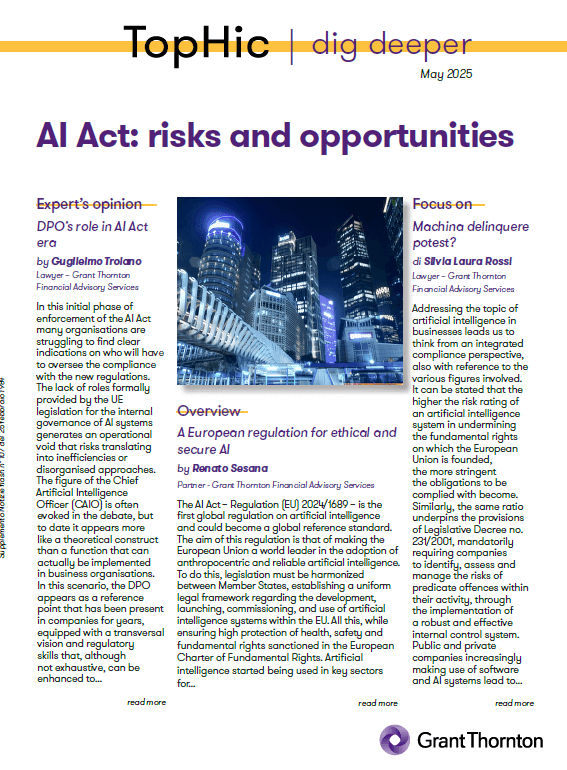AI Act: risks and opportunities

AI Act: risks and opportunities
The AI Act is the first global regulation on artificial intelligence and aims at making EU leader in the adoption of a reliable and anthropocentric, harmonizing regulations of EU Member states.
The regulation has a risk-based approach: the higher the risk, the higher the responsibilities, up to the ban on use for systems considered unacceptable. In this context, the DPO can play a supporting role, though with some limits, in the first implementation phases of the regulation.
The integration of AI in business governance also requires particular consideration of obligations under Legislative Decree no. 231/2001, especially in relation to predicate offences. Effective internal control and constant human supervision are key elements to ensure conformity and prevention of legal risks.
Click here for the overview
By Renato Sesana - Partner Grant Thornton Financial Advisory Services
The AI Act – Regulation (EU) 2024/1689 – is the first global regulation on artificial intelligence and could become a global reference standard. The aim of this regulation is that of making the European Union a world leader in the adoption [...]
Click here for expert's opinion
By Guglielmo Troiano - Lawyer Bernoni Grant Thornton
In this initial phase of enforcement of the AI Act many organisations are struggling to find clear indications on who will have to oversee the compliance with the new regulations. The lack of roles formally provided [...]
Click here for the focus on
By Silvia Laura Rossi - Lawyer Grant Thornton Financial Advisory Services
Addressing the topic of artificial intelligence in businesses leads us to think from an integrated compliance perspective, also with reference to the various figures involved. It can be stated that the higher the risk rating of [...]